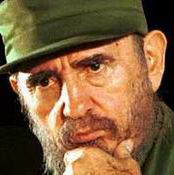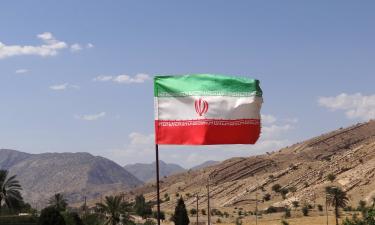Cuba: Bush insists with the "dumbest policy of the world"
 Last week, the White House announced a plan to overthrow Castro by strengthening the 40-year blockade and increasing propaganda. The result: Strong internal criticism, lack of support from Latin American countries and skepticism in Cuban dissidence.
Last week, the White House announced a plan to overthrow Castro by strengthening the 40-year blockade and increasing propaganda. The result: Strong internal criticism, lack of support from Latin American countries and skepticism in Cuban dissidence.
With an eye on November elections, US president George W. Bush announced last week a plan to oust Cuban revolutionary leader Fidel Castro. The new plan, which consists of tightening the useless 42-year blockade and increasing propaganda, has been welcomed by the exiled Cuban community in Miami, but received with skepticism by the internal dissidence.
Bush ordered a US military plane to broadcast anti-Castro messages into Cuba and will also tighten restrictions on Cuban-Americans' cash remittances to relatives on the island and limit family visits between the US and Cuba to one every three years, officials said in Washington. Therefore, Bush will insist with what Colin Powell's chief of staff Larry Wilkerson once called “the dumbest policy on the face of the Earth".
The plan, euphemistically presented by Washington as a “road to democratic transition” in Cuba, has been angrily rejected by Havana and Mexico, country that voted against Castro’s regime at the UN Human Rights Committee, said it would not support it because it means an “intromission into the sovereignty of an independent State”. Words came from Mexican conservative President Vicente Fox, himself.
Last Friday, Cuba slammed US plans to tighten sanctions on the cash-strapped communist country as "cruel and cowardly," with the Communist Party insisting it will stand strong against US President George W. Bush's "putrid ideology." "His cruel and cowardly measures surely will impose some sacrifices on our people, but they will not stop for a single second its strides toward human and social goals" a Cuban Communist Party statement said.
And there is more: "All of the craziness of the maniacal and insane Cuba transition program of a fraudulently elected president [Bush] is geared to that end," it said, calling the US plan unveiled Thursday a hodgepodge of "lies, rancor, frustrations and meddling in the domestic affairs of a country" in line with an "imperialist plan to annex Cuba." "Cuba shall never return to the horrible, savage and inhuman condition of being a colony of the United States," said the party document, one of its harshest against Bush since he took office in 2001.
Clearly, Bush plan is intended to get the votes of the reactionary Cuban community living in Miami, Florida, State ruled by his brother Jeff. Thanks, to these votes –and a further little help from his friends at the Supreme Court- George W. Bush jumped into presidency in 2000.
This "is a strategy that says we're not waiting for the day of Cuban freedom, we are working for the day of freedom in Cuba," Bush said after meeting with the panel, which he created to recommend a tougher line on Havana, as the November US presidential election looms. Florida, home to some 800,000 Cuban-Americans, is considered likely to be a key state in the election.
However, Cuban dissidence did not welcome the initiative: Elizardo Sanchez, who heads the Cuban Commission for Human Rights and National Reconciliation, said that he was "very skeptical" and saw "few practical results" in the plan.
All in all, Bush illegal plan on Cuba, may strengthen Castro’s position in the region, and among leftist intellectuals that showed dislike on Havana’s human rights policies last year.
Subscribe to Pravda.Ru Telegram channel, Facebook, RSS!




